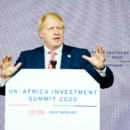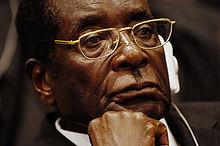Defining the diaspora’s role and potential with Africa (a response to ‘What’s diaspora got to do with it?’) – By Semhar Araia

 Beyond the broad categorizations of the African diaspora and rhetorical questions posed by Dele Fatunla in his blog post, “What’s Diaspora Got To Do With It?”, he raises an important and timely question about what role the African diaspora plays and should play in supporting Africa’s growth.
Beyond the broad categorizations of the African diaspora and rhetorical questions posed by Dele Fatunla in his blog post, “What’s Diaspora Got To Do With It?”, he raises an important and timely question about what role the African diaspora plays and should play in supporting Africa’s growth.
Fatunla correctly lists remittances, tourism and brain drain as areas where diaspora have proven to have a critical impact in Africa, albeit sporadic at times. These are the most recognizable ways in which diaspora relate with Africa. They are not comparable to the experience of day-to-day living in Africa, but as a member of the diaspora that once relocated to my ancestral homeland of Eritrea for two years and currently spends half my time on the continent, I know there are additional ways Africans abroad are making an impact in Africa.
Before we explore those examples, it’s worth noting that Fatunla fails to define who exactly the diaspora is within the context of his analysis. It is overly simplistic and dangerous to suggest they are “a group of people who by and large fled the continent when it was most in need, and returned when it least needs them“. The diaspora must be disaggregated into its many parts and identify what contributions they actually are providing.
To begin, the “African diaspora” is not monolithic. We are a diverse, multifaceted & multigenerational demographic spanning every continent and socioeconomic status. There are exhaustive studies by the World Bank, Migration Policy Institute, DFID and countless NGOs exploring this definition. Many diaspora left home or were raised abroad for a variety of reasons, including war, conflict, insecurity or the lack of economic opportunity. Yet we remain connected with our homelands. Others grew up abroad and maintained a relationship with the continent by any means, either through regular visits, community language school or establishing transnational business ties. Even more significant however are the emerging diaspora youth leaders raised abroad and seeking to forge deeper relationships with their homelands, as will be revealed later in this piece.
The other shortcoming with What’s Diaspora Got to Do With It is that it falls completely short on recognizing the diaspora’s added value – which is far beyond economic remittances and sporadic tourism. Even though remittances continue to be the largest form of diaspora contributions, amounting to roughly $40 billion a year to support livelihoods and development, it is not the only form of significant deliverables from diaspora.
The last decade’s sudden explosion of technology, social media and new models for change has resulted in more contributions from the diaspora, particularly around long term development and advocacy. Here are just a few examples:
1. Promoting development: Through innovation, broad based networks, and tried and true outreach, diaspora are taking their love for Africa and applying it with ingenuity for good. Diaspora entrepreneurs and organizations are widening spaces in the continent for African-led development and growth. Initiatives such as Villages in Action, Shea Yeleen, Sierra Visions, Face Africa, and Akili Dada are just a few of the successful diaspora efforts launched in Africa with local communities. With each example, these organizations were founded by diaspora who arrived to the States at a young age, or were educated abroad, or were raised entirely abroad. The new face of diaspora and development is continuing to change.
2. Support for humanitarian emergencies: When disaster strikes, Africa’s greatest resource has consistently proven to be its people. Diaspora groups are a crucial lifeline to access those in need, by sending messages and delivering help. The current drought ravaging East Africa spurred Africans on the continent and abroad into action. Within weeks, Kenyans, South Africans, Nigerians, the broader Horn of Africa diaspora and more helped to raise millions of dollars for relief. Somalia’s famine motivated Somalis abroad to relocate and help people most in need. Efforts such as the Global Somali Response is one of many incredible examples of partnership and support. Again, another organization founded by a next generation diaspora leader.
3. Building bridges between Africans & non-Africans: Africa is not bound by its borders. As Nigerian-American journalist Dayo Olopade calls it, Africa is the “Bright Continent”. Its people are a rich source of energy, life and innovation. They are the bridges between countries and continents. By celebrating our rich cultural heritage, diversity and histories, relationships are forged with foreigners, including those unable to visit the continent themselves. Photos and stories are shared in the halls of the diaspora community center. Myths are dispelled. Messages are conveyed. And stereotypes are broken.
4. Adding new layers to the African narrative: Stories of Africa’s development and its needs must be told by those on the continent first, but diaspora do help facilitate those stories. They add a deeper layer to Africa’s story and are an asset. As diaspora groups grow in presence and participation, so too will these narratives. In addition to storytelling, diaspora owned businesses, faith based groups, community organizations, youth associations, and private enterprises are eager to carry Africa’s message to newcomers and supporters alike.
5. Helping to shape Western & regional foreign policy agendas and offering models of civic participation: New advocacy groups, civic associations and diaspora networks have also flourished in the West, particularly around conflict resolution, networking and economic trade with the continent. Assuming diaspora apply effective advocacy strategies, they can help shape foreign policy priorities and shift analyses for Africa’s betterment. Governments, organizations and decisionmakers recognize this power and potential of the African diaspora. They understand that beyond their wallets, diaspora are legitimate stakeholders in Africa’s future. The African Union has already declared the African diaspora as the Sixth Region of the AU. The United States, United Kingdom, and various African countries have also created initiatives and opportunities to engage with diaspora directly.
I agree with Fatunla’s premise that more investment must be made in Africa’s leaders on the continent to create the next generation of Adichies, Okollahs, Iewalas, and yes The Elders.
But having worked for and traveled with The Elders myself, and having had the chance to learn from African leaders in the diaspora, I can personally attest to the power and notion of Ubuntu: I am because you are. It is clear that diaspora have quite a lot to do with Africa because Africa has quite a lot to do with the diaspora.
Semhar Araia is founder & executive director of DAWN, the Diaspora African Women’s Network.






[…] As I’ve argued before, diaspora are important stakeholders in Africa’s success and are critical to Africa’s growth, development and relations with the rest of the world. Our economic remittances are just the tip of the iceberg. Not only do we send billions of dollars in remittances annually to the continent, often surpassing many African countries’ GDP, but we are also ambassadors and change agents in our local communities. […]
[…] by Dele Fantula is: What’s Diaspora Got To Do With It? The question has attracted reactions from Semhar Araia, Boko Inyundo and Chukwu-Emeka […]
[…] by Dele Fantula is: What’s Diaspora Got To Do With It? The question has attracted reactions from Semhar Araia, Boko Inyundo and Chukwu-Emeka […]
[…] As I’ve argued before, diaspora are important stakeholders in Africa’s success and are critical to Africa’s growth, development and relations with the rest of the world. Our economic remittances are just the tip of the iceberg. Not only do we send billions of dollars in remittances annually to the continent, often surpassing many African countries’ GDP, but we are also ambassadors and change agents in our local communities. […]
chloroquine malaria https://chloroquineorigin.com/# plaquenil sulfate 200 mg
https://cialiswithdapoxetine.com/ generic cialis